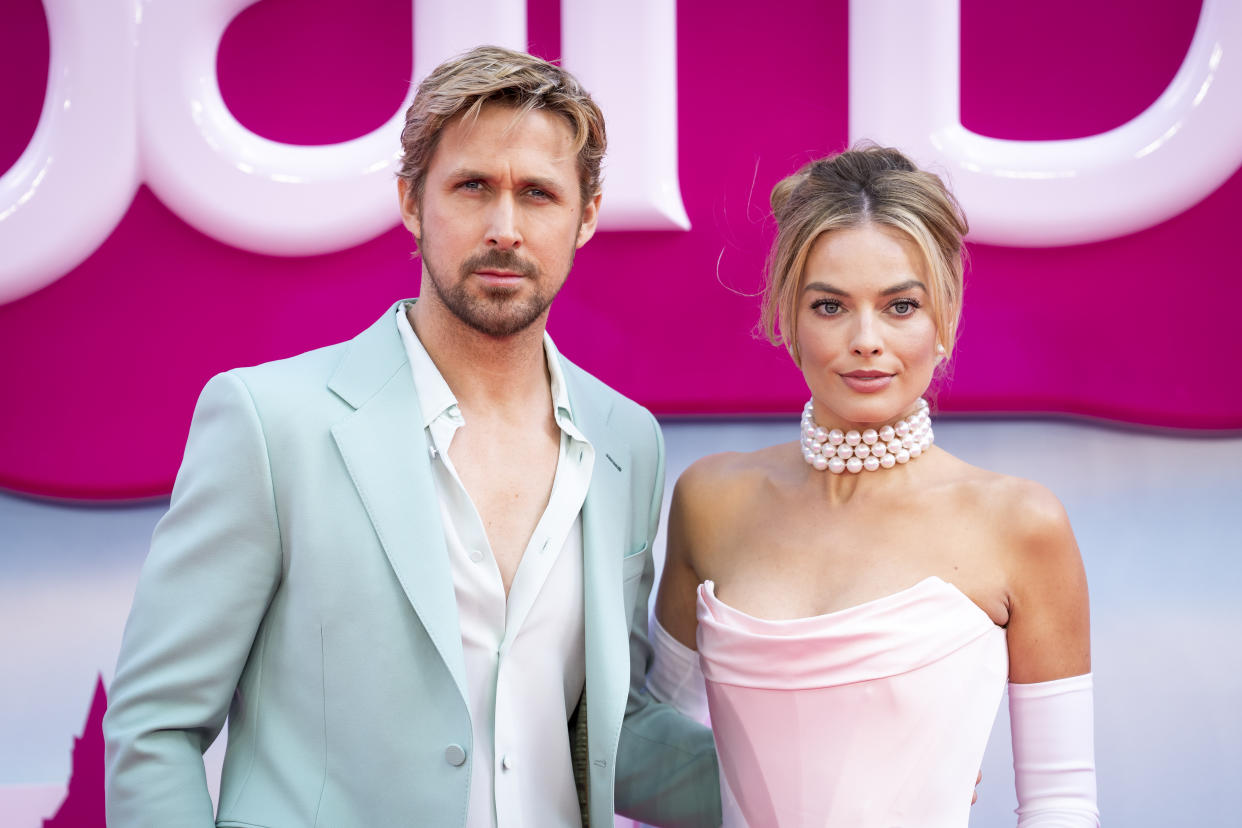The Barbie movie is a 2-hour Mattel commercial
I gave it a try.
Neither Barbie nor Ken played a meaningful role in my childhood, but the Barbie movie got such glowing reviews I thought it culturally imperative to check it out. My 24-year-old son Robert was interested, too, because he thought the trailers were hilarious. So we went to see it together on opening weekend.
We ending up sitting through a two-hour commercial for Mattel. Sure, the film is clever and sumptuous, as umpteen reviewers have noted. But we both left feeling underwhelmed, like we were undernourished after gorging on cotton candy. “It was too young for old people, and too old for young people,” Robert told me after we discussed it for a while.
The movie is a huge hit, with record-breaking sales and lavish praise for director Greta Gerwig’s wry sendup of stereotypes and counter-stereotypes. I guess I’m not surprised. Take a set of iconic and controversial toys; anthropomorphize them via the world’s hottest screen stars, Margot Robbie and Ryan Gosling; and imbue the whole production with winky self-referentialism that makes viewers think they’re in on the joke. Credit Gerwig for figuring out how to craft a smash that doesn’t involve superheroes or Tom Cruise on a motorcycle.
But come on. The arch feminist manifesto that powers the story—“you have to be thin, but not too thin…”m— feels decades late. Had the Barbie movie come out in 1970, it would have been revolutionary. Had it come out in 2000, it would have been thought-provoking and timely. But after the Me Too revelations, the Supreme Court’s overturn of national abortion rights, and 20 years of stagnating pay for women, Barbie’s dawning awareness of patriarchy feels like Feminism for Dummies.
The strongest sensation I had leaving the theater was that I just sat through an elaborate Barbie rebranding campaign. Since its introduction in 1959, Barbie morphed from a harmless tool of make-believe into a toxic instrument of subjugation. Critics argued that the doll’s impossible supermodel anatomy and airy lack of ambition were a terrible model for girls. Dollmaker Mattel responded over the years by introducing a whole range of diverse alternatives and an “inspiring” lineup of high-achieving Barbies.
But modern Barbie needs more. So the movie updates her for the meme era, imbuing her with semi-ironic self-awareness. The tale begins with oblivious Barbie living vapidly in Barbieland, until a bit of troubled human emotion breaks the seal and draws Barbie into real Los Angeles, where her manipulative creators at Mattel just want to put her back in her tidy packaging. Ken tags along and discovers that men run things outside of Barbieland. Having eaten from the tree of the knowledge of good and evil, Ken returns to Barbieland to compound original sin and establish patriarchy. Barbie & Friends must vanquish the Kens and restore the proper order. Everybody becomes wiser in the process.

[Drop Rick Newman a note, follow him on Twitter, or sign up for his newsletter.]
Mattel, which is a partner in the film and the beneficiary of a Barbie merch extravaganza, took a risk. In the film, Mattel is the enemy, the perpetrator of patriarchy, led by clueless CEO Will Farrell. There’s a climactic dreamlike soliloquy by Ruth Handler, who invented Barbie and co-founded Mattel, and in the film is a ghostlike presence relegated to some warren at Mattel HQ. Her corporate spawn ruined what she created, and the time has come for the ghost of Ruth to make things right. So Handler is the hero who straightens Barbie out, even as Mattel is the villain.
Not too many publicly owned companies are willing to make themselves the butt of the joke in a blockbuster presentation everybody is bound to notice. This is part of the film’s meta vibe, in which real characters, Mattel management, countenance their fictional alter-egos, while fake characters—the Barbies and Kens—strive to become real ones.
A lot could have gone wrong. Every week another big company seems to fall on its face while trying to demonstrate how trendy and inclusive it is. The Mattel-Warner Bros. team could have played it safe, but they didn’t, exactly. In one funny exchange, Barbie explains to a real-world gawker, “We don’t have genitals.” There’s also a laugh-out-loud gynecologist joke. The movie dangles just enough provocative material to trigger fussbudgety anti-woke conservatives, who, on cue, lamely expressed their disapproval.
If this is a culture war, Barbie will win, because the film is fun, clever, amusing, and massively popular. Give Mattel credit for daring to be edgy, and nailing it. But the film also punks everybody who thinks it’s great cinema. Instead, it’s a masterpiece of cinematic marketing, an entertaining publicity stunt that taps nostalgia in the service of reinvention. How American.
Rick Newman is a senior columnist for Yahoo Finance. Follow him on Twitter at @rickjnewman.
Click here for the latest stock market news and in-depth analysis, including events that move stocks
Read the latest financial and business news from Yahoo Finance
